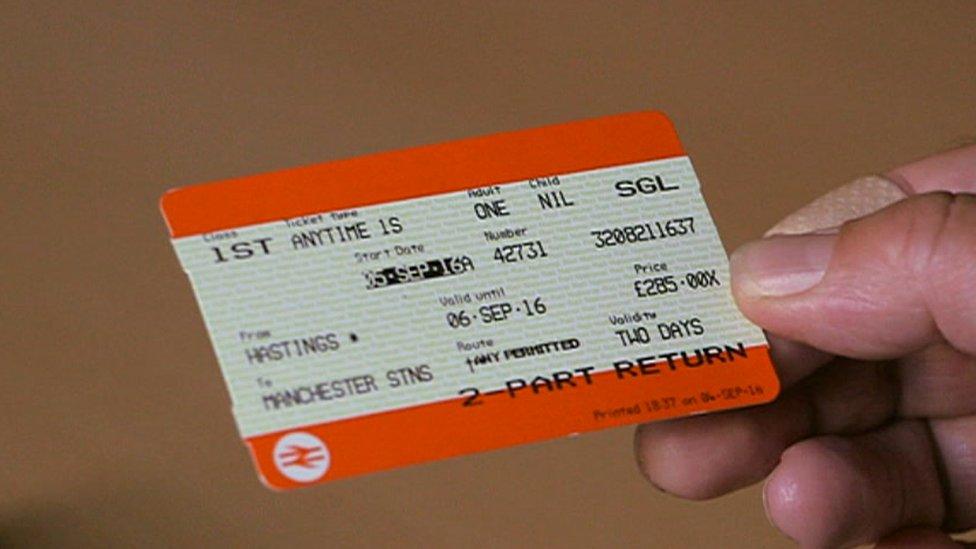Southern Rail strikes: Eight things you wanted to know
- Published
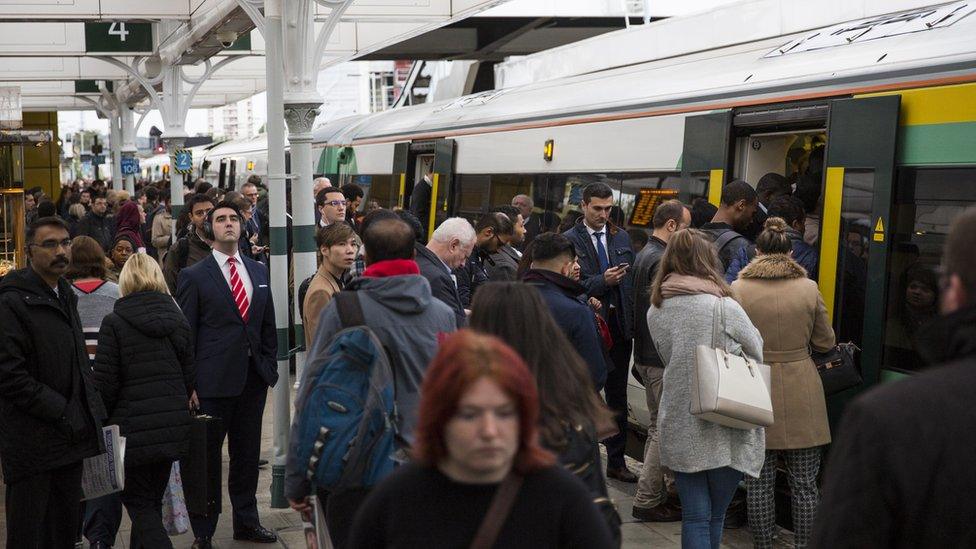
Commuters have faced several strikes in the long-running dispute between Southern and the RMT
Southern Rail workers have gone on strike again as part of a long running dispute over proposed changes to the role of train conductors. You've been sending us your questions to put to the rail company, government and the Rail, Maritime and Transport (RMT) union.
Southern Rail, owned by Govia Thameslink, wants to replace conductors with 'on board supervisors' who would work across different services and no longer be in charge of closing train doors.
The trains would then become Driver Only Operated (DOO) vehicles, meaning the drivers would be in charge of opening and closing the carriage doors.
Here are eight things you wanted to know about the issue.

1. If we change operator, will that cause a lapse in service? Would the Govia Thameslink Railway (GTR) staff lose their jobs? It seems like the same problems may continue.
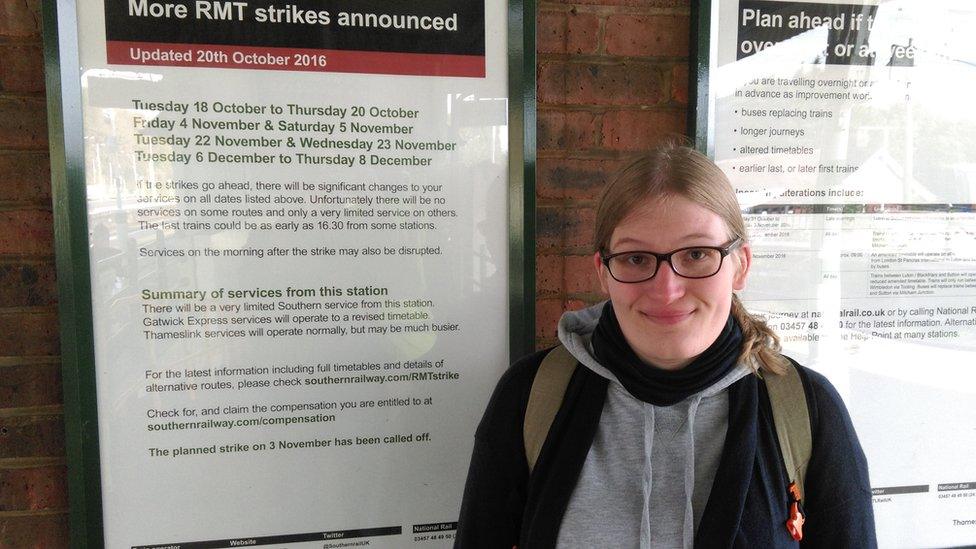
Amy Bullivant commutes on the train every day
Student Amy Bullivant, 26, and her partner Daan, from Crawley, commute on the trains every day to Brighton and London.
She described the journey as their "daily headache" and asked this question because she assumes the problems with GTR services are not "easy to fix" because of the amount of times she has already experienced them.
A Department for Transport spokesman said simply changing the management "achieves nothing" and that staff would transfer to the new operator.
But he also said: "Govia Thameslink Railway is implementing these changes that will modernise services and provide better journeys, without any job losses, and it is disappointing that union bosses continue to overlook the impact they are having on passengers."
But the union said it had no alternative but to take action over what it called "blatant disregard for the safety and security of passengers and staff alike".

2. Govia Thameslink also has the Integrated Kent franchise. Are there plans to extend the same door closing policy to Southeastern Trains too?
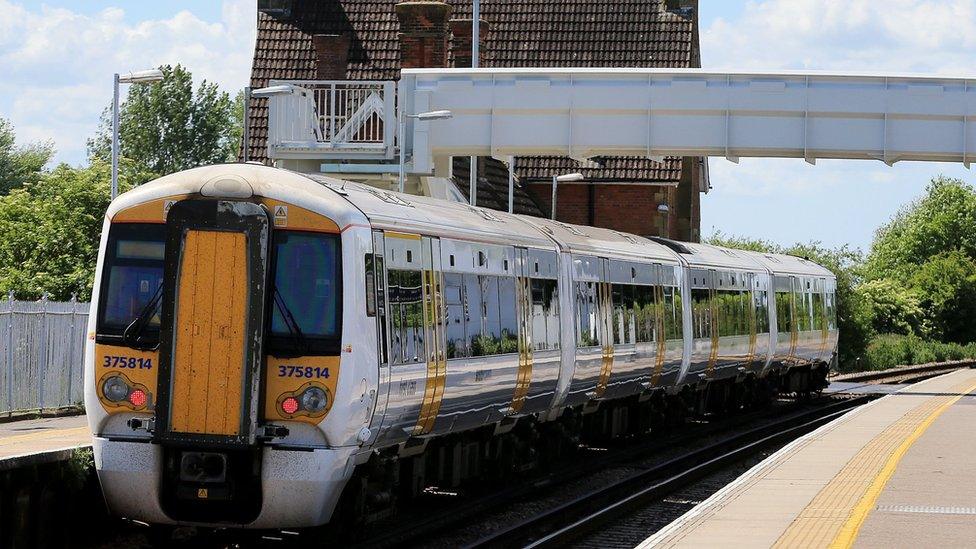
Southeastern trains is operated by the same company
The simple answer is no, but Go-Ahead, the company which co-owns Southern Rail, also operates the Southeastern Railway franchise, which runs until June 2018, and the London Midland Trains franchise, which runs until October 2017.
A spokesman said neither of those franchises currently include plans for Driver Only Operation (DOO), although the Southeastern metro routes have been DOO for a couple of decades.
A Department for Transport spokesman said: "Many operators across the country use driver operated doors, which has been in practice since the 80s.
"The department is keen to see the modernisation of operating practices, such as train despatch processes, extend progressively across the industry, to help improve services for passengers."

3. How much profit did Southern Rail make last year?
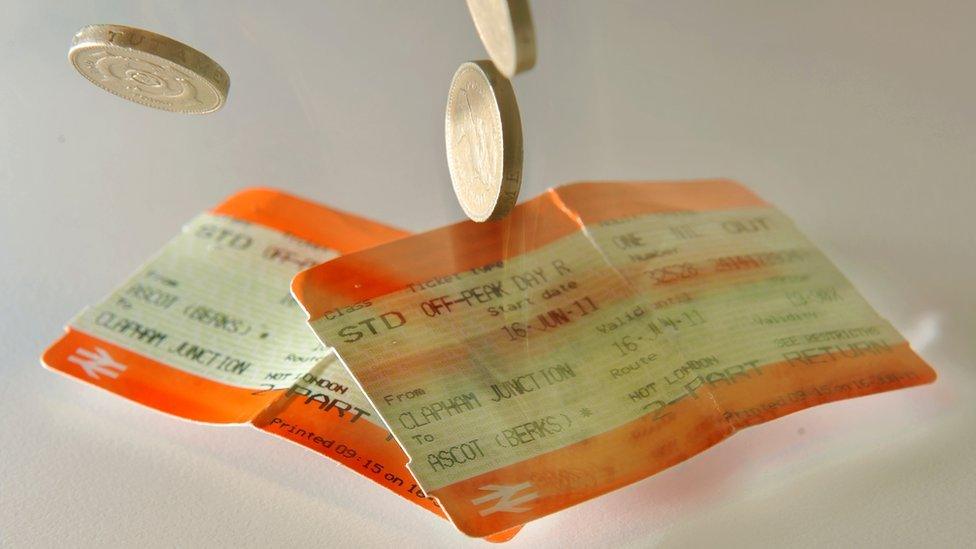
Southern Rail said it "did not make any profit last year" and it is "not likely to make a profit next year either".
According to Companies House, external, the company made an operating profit of £20.9m in the year ending 27 June 2015 with a post-tax profit of £15.9m, about £6m less than the previous year.
On 26 July 2015 the company transferred to Govia Thameslink Railway.
Go-Ahead, which owns 65% of Govia, reported a profit of nearly £100m this year.
A spokesman said all the income went into "running the business and delivering the service" and that the costs of the business last year meant a loss was made.

4. What would happen in the event of the driver or passenger becoming ill, a violent incident requiring police or medical assistance, or an accident on a train with no conductor?
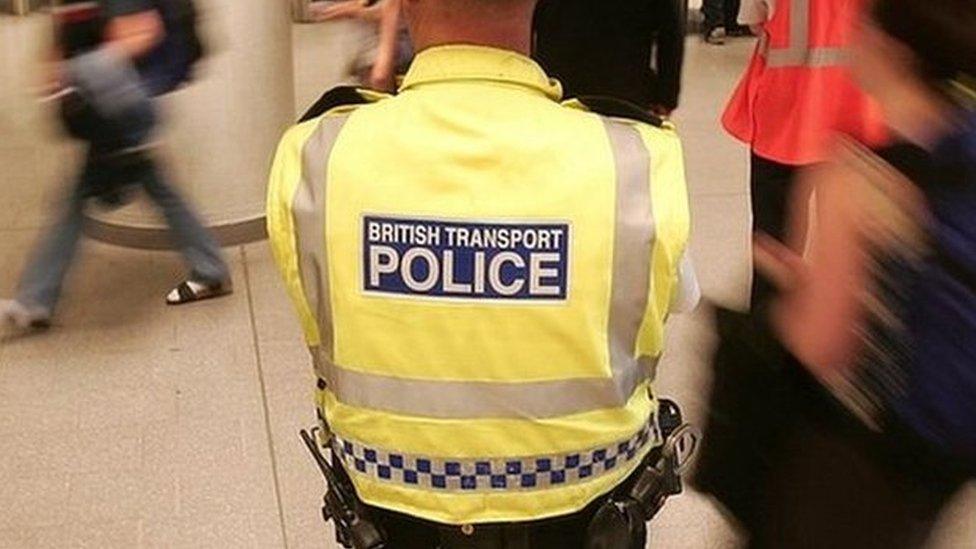
What would happen in the event of an incident requiring police or medical assistance?
This is a key argument for the union, and Mick Cash, RMT general secretary, said that without a guard or conductor on board, there would be nobody to assist with this type of incident.
But a Southern Rail spokesman said: "Let's be very clear on this. We are not taking anyone off our trains... The RMT union is misleading the travelling public into believing that we are.
"The role of the conductor is evolving into the role of the on board supervisor and trains that have a conductor today, will have an on board supervisor rostered on them going forward."
He claimed there will actually be more people on board than there are currently and the on board supervisors will all be safety and security trained.

5. Why not consider a period of six months to put the omission of guards into operation and see if any safety issues come out?
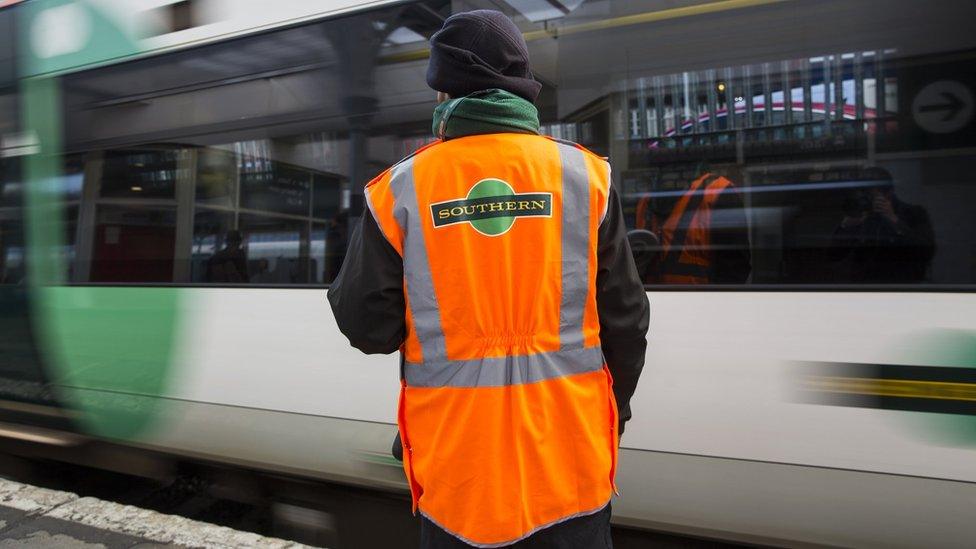
The RMT will walk out on Friday and Saturday in a row about changes to guards' roles
Mick Cash, RMT general secretary, said: "If we gave the train company six months grace to trial their plans we know that they would seize that opportunity to get rid of the guards on the basis that once they are gone they are gone.
"The plans are about saving money... Once the train company has hacked back the headcount there is not a cat in hells chance that they would reinstate them."
But a Southern Rail spokesman said that they are "not taking people off the trains".
"It's not about saving money... There's a job for everyone who wants one and no-one will be losing any salary. We have guaranteed the role of on board supervisor until the end of our franchise in 2021."

6. If RMT feel the Driver Only Operation (DOO) is so unsafe, why are they not striking where it is already implemented?
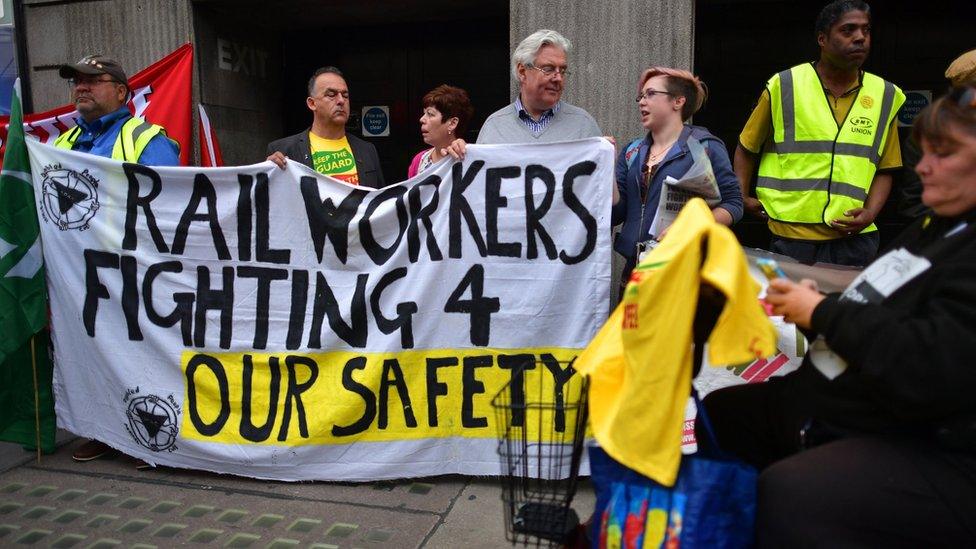
Industrial action was taken by rail workers in September
Guy, 31, from Woking, travels on Southern Rail trains two to three times a week and pointed out that the Driver Only Operation (DOO) is already in use on other rail lines - such as the London Underground - and wondered why, if the union claim it is "unsafe".
"Citing DOO as a safety issue is either totally misleading or, if they do feel that the concerns are genuine, something they should be raising as an issue wherever it is [already] implemented," he said.
He wanted to know why the union is not striking on train lines where the changes are already in place.
Mick Cash, RMT general secretary, said it would be "impossible" for the union to conduct a strike legally where DOO already operates.
"It would fall foul of the anti union laws and there would be no guards to ballot anyway," he said. "However, the union is campaigning for DOO to be reversed in the limited areas where it already operates and we will use every tool at our disposal to take that campaign forwards."

7. What is wrong with the maintenance regime? Every day there are multiple cancellations due to train faults even when running at 60 per cent!

Commuter James Orchard uses Southern trains every day
James Orchard, from Kenley in Surrey, travels with Southern Rail every day to London for work.
The 35-year-old said he is often left frustrated because of "faulty trains" which cause "widespread delays and disruption" across parts of the network, and so wanted to know why these issues were not being fixed.
A Southern Rail spokesman apologised for the disruption and said:"We have a robust maintenance regime in place, which under normal circumstances allows for the full timetable to be covered every day. However, we run over 2,242 services every weekday on Southern and occasionally, train faults occur which means they have to be taken out of service for repair.
"Taking a train out of service for repair can sometimes mean that we have to either short-form or cancel the services this train was due to provide."

8. What is stopping Southern Rail from running trains without conductors during the strike?
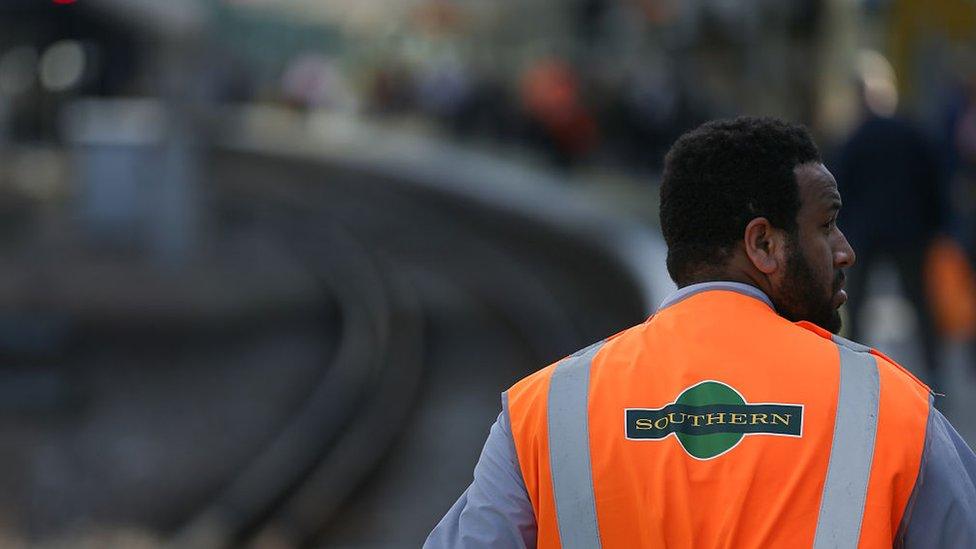
Currently, conductors have to have "specific knowledge of the route they are working on"
Robert Sinclair commutes from Brighton to London every day for work and wanted to know what was stopping the train operator from running trains without conductors during the strike - if that is what they are trying to implement anyway.
Mr Sinclair said: "Southern say they will go ahead with their plans for driver-only trains, irrespective of the wishes of RMT, so what is stopping them from doing so immediately?"
A Southern Rail spokesman explained that currently, conductors have to have "specific knowledge of the route they are working on" and have to close the door when the train is ready to leave the station - this means conductors without specific knowledge, combined with drivers not trained to DOO, would not be able to run the route.
"A train which currently has a conductor rostered for it is either severely delayed or cancelled if the conductor is not available," he said. "Therefore, when the union calls its conductor members out on strike, the trains can't run."
The new role of 'on board supervisor' which Southern is proposing would apparently not need specific knowledge and would be able to work on any train, so could be placed where they are needed most.
But Mick Cash, RMT general secretary, hit back at these claims. He said: "They want the power to be able to run services with just a driver on board anytime, anyplace, anywhere. The company want the freedom to run DOO whenever they like as it means they can hack back on staffing levels over time to a point where driver only services become the norm."

RMT strike dates:
00:01 Friday 4 November to 23:59 Saturday 5 November
00:01 Tuesday 22 November to 23:59 Wednesday 23 November
00:01 Tuesday 6 December to 23:59 Thursday 8 December
00.01 Thursday 22 December to 23.59 Saturday 24 December
00.01 Saturday 31 December 2016 to 23.59 Monday 2 January 2017

- Published3 November 2016
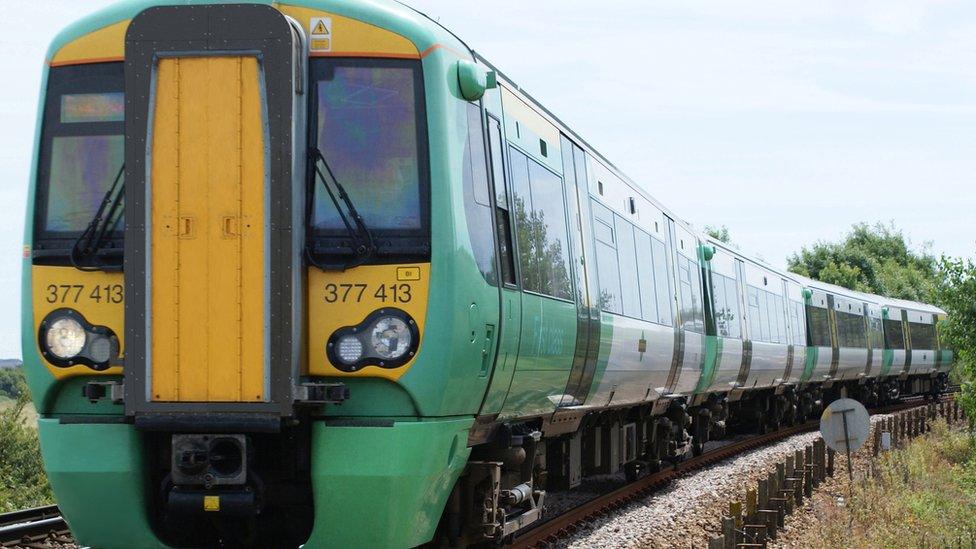
- Published3 November 2016

- Published2 November 2016
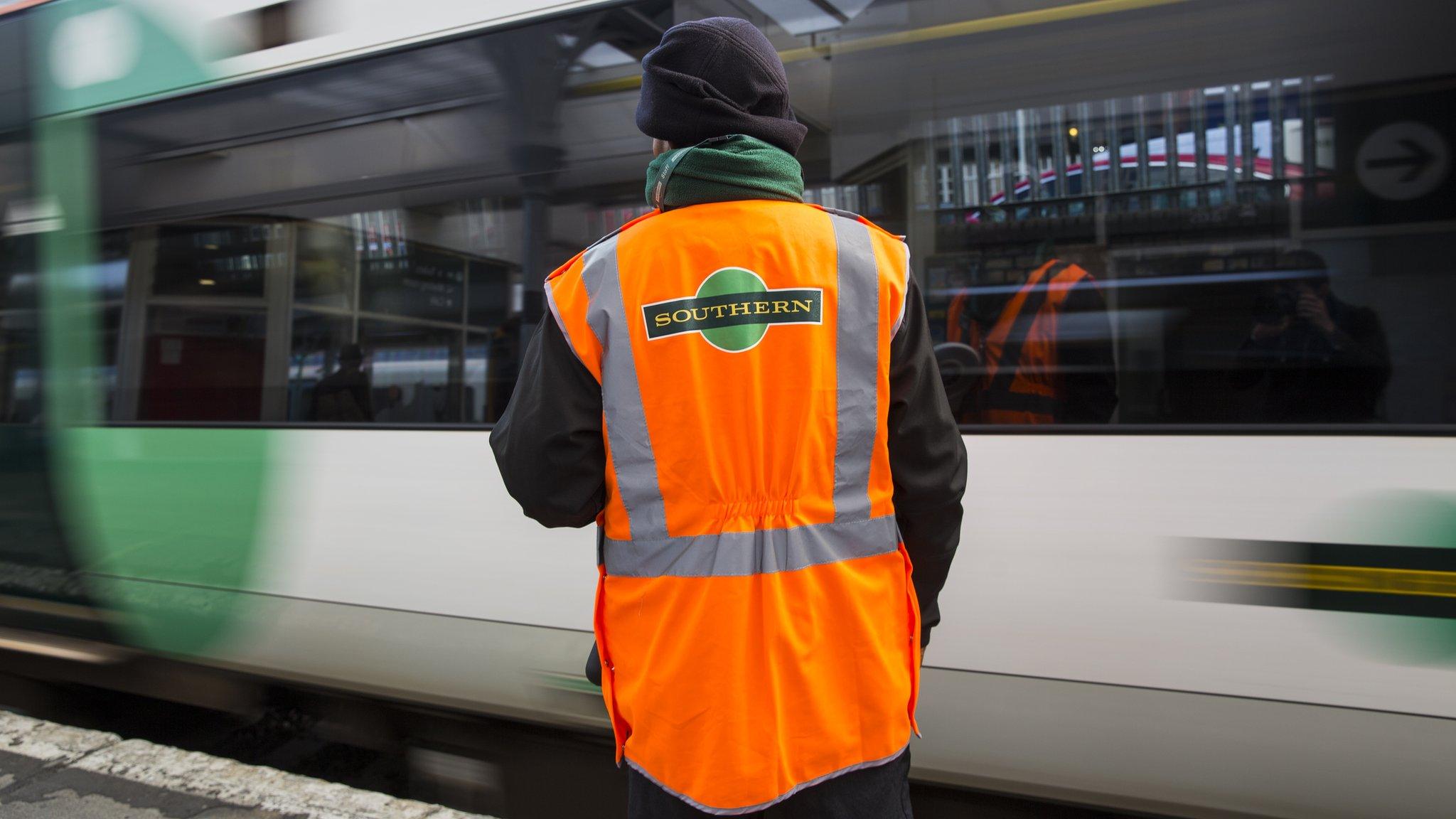
- Published31 October 2016

- Published31 October 2016
